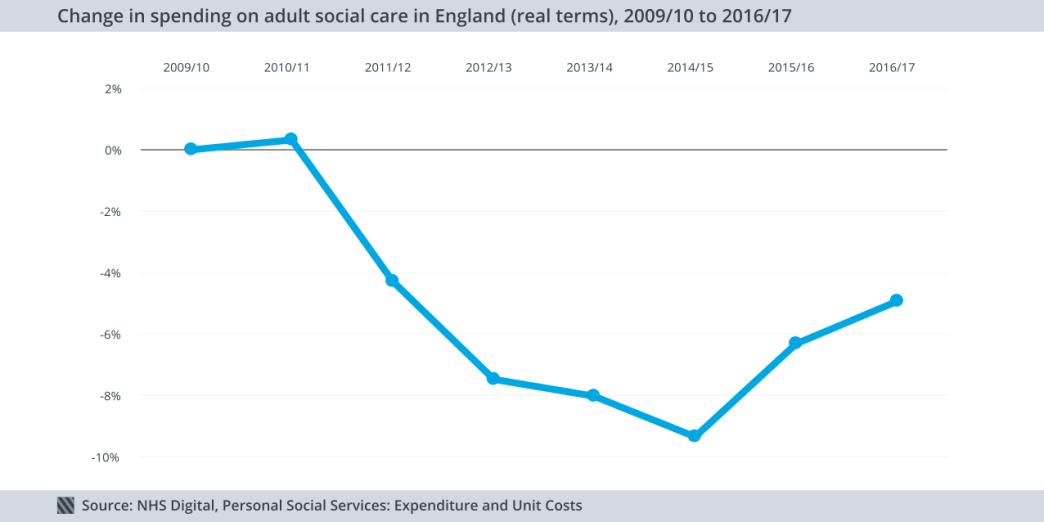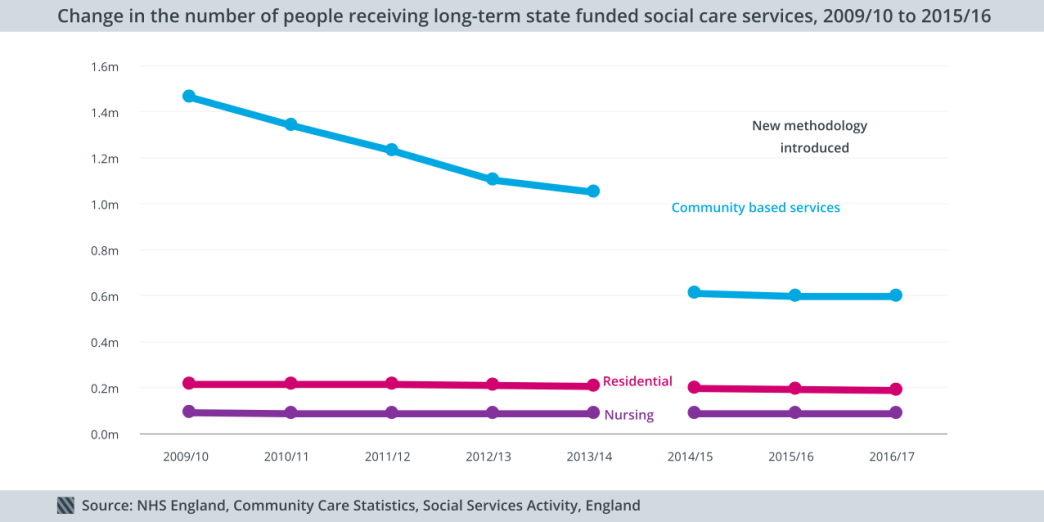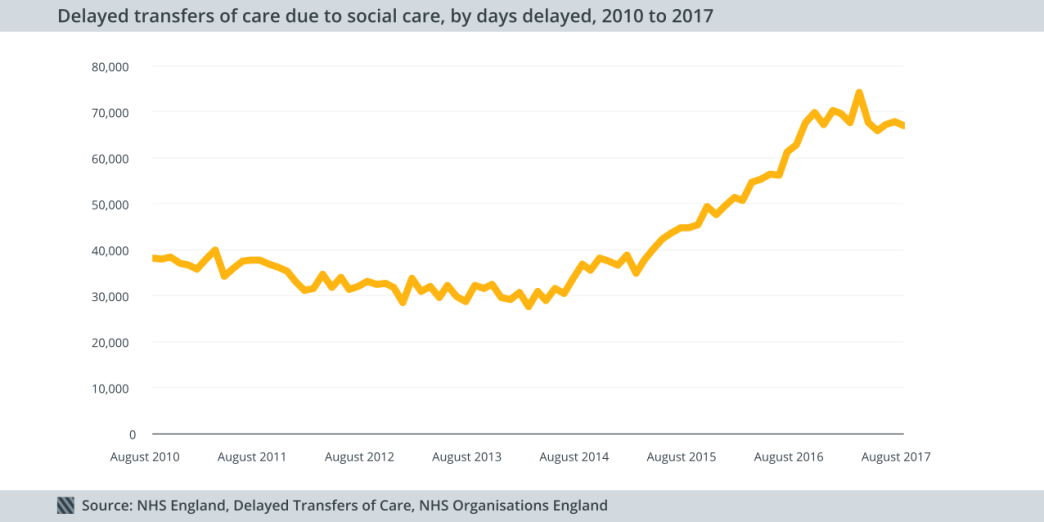The problem with a sticking plaster approach to adult social care comes when you take it off
The Government needs to break out of its cycle of crisis, cash and repeat on adult social care. The latest data shows that the Government needs to sta
The latest social care data shows that the Government must start planning now for what will happen when the money runs out, argues Lucy Campbell.
At the Spring Budget, the Government injected an extra £2bn over three years into adult social care, responding to mounting political and operational pressures.
This sticking plaster approach did not address any of the lingering questions about the long-term future of the provision and funding of adult social care. The latest data from NHS Digital shows that, while the provision of adult social care has stabilised, it is still in need of reform. The upcoming Budget provides an early indication of how prepared the Government is to tackle the severe performance issues within public services.
Spending on adult social care is rising for the second year in a row

Spending on adult social care rose by 2% in real terms for the second year in a row, although it remains 5% lower than it was in 2009/10. Despite recent funding increases, local authorities and care providers continue to report financial challenges which they anticipate will only increase over time as the £2 billion injected at the Spring Budget was front-loaded to this year.
The number of people receiving long-term care packages is still falling

New spending on adult social care is not paying for more long-term packages. Between 2014/15 (when a new classification was introduced) and 2016/17, the number of clients receiving long-term care packages has fallen.
Specifically:
- Community care dropped by 2% (from 609,115 to 596,935)
- Residential care dropped by 4% (from 190,045 to 186,885)
- Nursing care dropped by 2% (from 85,590 to 84,465)
These decreases are occurring in the context of a consistent fall in the number of people receiving state-funded social care services since 2009/10.This is despite an ageing population and an increase in the number of people living with long term conditions like dementia or learning disabilities.
How can the number of long term care packages decline even as spending increases?
One possible explanation is the increase of short term care packages. These are intensive periods of care, designed to promote independence and reduce the need for care packages over the longer term. The number of these packages increased by 6% between 2014/15 and 2016/17, from 293,075 to 309,835. However, this by itself does not fully account for the increase in spending.
Another explanation is that it’s becoming more expensive to provide care. Gross current expenditure on long term care rose in 2016/17, even as the number of clients decreased. Councils cite the introduction of the National Living Wage as one of the reasons why spending has gone up as the wage bill for social care providers is getting more expensive.
Delayed transfers of care - caused by social care - is stabilising

One of the key social care pressure points – "delayed transfers of care" – appears to be stabilising. After increasing by over 70% between August 2014 and 2016, the number of delayed days due to social care rose by only 7% between August 2016 and 2017, peaking at 74,288 in March 2017 before dropping to around 67,000.
Of course, this change is about more than just the money. There has been significant attention paid to delayted transfers of care over the last six months, with new performance targets introduced by the Department of Health.
The Government needs to find a way to break the cycle of cash, crisis and repeat
The adult social care funding green paper has been downgraded to a consultation. It was promised for summer 2017 but has been pushed back to early 2018. Any benefits from this consultation will take time to materialise and long after the sticking plasters of emergency cash have come off in adult social care.
In the wake of election disappointment and a politically embarrassing U-turn on social care proposals in the Conservative Party manifesto, it is unsurprising that the Government is reluctant to reopen these difficult discussions.
But the Government's actions to date are only delaying the inevitable. As the Institute for Government argues in the latest Performance Tracker, they must begin to prepare the ground for future changes if it does not want to refight political battles or have to return with more cash in a few years’ time.
Read more about adult social care and the performance of key public services in the latest edition of Performance Tracker. Social care will also feature in an upcoming Institute for Government project on funding long term health and social care.
- Supporting document
- 5991 IFG - Performance tracker Autumn 2017 update.pdf (PDF, 2.14 MB)
- Topic
- Public services